
Todd Alsup: “I’ve done a lot of growing up since my first album…I’m less afraid to simply be myself”
The New York-based pop/soul sensation steps away from the piano to talk about his life, work and third studio album
Singer-songwriter Todd Alsup says that his days are anything but typical, and include regular gigs showcasing his originals and covers, plus “lots of espresso, lots of Spotify, and lots of resisting online distractions.” With his new album just released, that workload has increased to include photo shoots, sitting for oil paintings (yes, really!), promotion and rehearsing.
Currency is his third studio album, a soulful mix of piano ballads, uptempo dance tracks and enough emotional introspection to make you question your own life as you listen. Produced mainly in Switzerland and funded primarily by a group of die-hard fans on Kickstarter, Currency is worth every bit of work that went into creating it.
We sat down with the New York City-based artist to ask a few questions about his life, his work, and, of course, his new album…
Who are your biggest influences, both for singing and for songwriting?
“There are almost too many to even list. I grew up on singers like Aretha Franklin, Stevie Wonder, Donny Hathaway and Whitney Houston. I enjoy listening to great singing in any genre, but these rich, soulful voices really taught me so much about tone and phrasing.
“My writing influences are all over the map. I love classic soul writers like Otis Redding, Holland-Dozier-Holland and Gamble & Huff just as much as I love modern pop writers like John Mayer, Ed Sheeran, Coldplay and The Weeknd.”
Have you ever had to take any side jobs to support yourself while singing? What were those like?
“In the past I’ve worked retail, tended bar, catered. I once had this crazy job working for Disney publicity that involved me showing up at an office at the crack of dawn and scouring through about 20 major newspapers looking for any mentions of the company. I was seriously up on current events!
“About 10 years ago I started teaching privately and have grown to really love sharing what I’ve learned as an artist with aspiring singers and writers. I have my own studio, still teach some and really enjoy it. Happily, my music is paying all of the bills right now. I know not everyone can say that, so I feel very lucky to be making my living exclusively from my art.”
This is your third album. How would you say you’ve progressed and grown from the first one – not only as a songwriter but as a person in general?
“I’ve done a lot of growing up since my first album and especially since my last album. I’m less afraid to simply be myself. I’ve learned a lot of important lessons about honesty, self-acceptance, gratitude, patience, and embracing change. I think that’s translated personally, professionally and creatively.
“You caught glimpses of the real me in previous projects, but on Currency you’re getting the unfiltered Todd Alsup. I’m much more willing to be raw and truthful about what’s really going on with me, and put that in my work.”
Do you have a typical songwriting process? What does that look like?
“I keep a running list of words, phrases and title ideas that I think might make for decent song material. My Voice Memos app is littered with stray humming and snapping and nonsense lyrical ideas. Sometimes these little seeds get immediate attention and sometimes they get rediscovered months later.
“I’ve learned the hard way to capture ideas immediately, because they will not be there the next day, I do my best work while walking. I can start with a very small idea in my head and take a walk with it and find that my brain is able to quickly put ideas in order both lyrically and melodically. I read somewhere that it has something to do with the movement of left and right legs and how it stimulates left and right brain communication. Whatever it is, it really works for me. I usually go to the piano to harmonize things last, but I also intentionally try to mix up my process. One day I’ll start with a groove, the next I might try starting with a title or chords.”
With all of the producers in New York City and in America, what was it about Swiss producer Orlando Ribar that made you choose him?
“It’s funny. I’d come home and tell American friends I was working on an album in Switzerland and they were all like “Ooh, wow!” but when I was in Switzerland, I’d tell folks I was from New York and had come there to record my album and they would be like “Oh… why?”!
“I have a longstanding relationship with Switzerland. Years ago I went to visit an American friend and play a gig there. The response was so great I’ve continued to go back year after year to perform. My Swiss band mate, Orlando Ribar, is a well-respected producer there and we started talking about the possibility of working together. We realised we had similar tastes and a shared vision about a new sonic direction for me. I had a lot of anxiety getting this project started, and I really needed someone I felt like I could trust. I knew I could be 100 per cent myself with Orlando. He had the perfect combination of pushing me in new directions while respecting the material and my artistic identity.”
What are some of the benefits and drawbacks of using Kickstarter for a music project? Would you use it again or recommend it to others?
“I’ve had incredible experiences using Kickstarter. We ran two successful campaigns during the course of making this album. The first campaign helped to fund some of the recording costs. The second one helped with paying for mixing and mastering. My fans (The Todd Squad) were so freaking generous it was just overwhelming.
“I’ve learned to embrace the idea that people love my music and are excited to be able to help, and to let go of any weirdness, feeling like it’s asking for a handout. It’s really not a handout. My work has value and I’ve offered really unique rewards in exchange for people’s pledges. The benefits of using Kickstarter are many. You just have to be diligent and organised, and you have to communicate with your supporters.”

Todd: “I had some vocal weirdness going on throughout the first eight months of recording. I felt perpetually gunky”
If you had to compress this new album into a single message for your fans, what would that message to be?
“The message may actually be more of a question: ‘Good or bad, what has value in your life? On what have you placed a premium?’ Without judging the answers, I began asking myself these questions and started taking stock of the driving forces in my life and wrote about them. Every song on this album was inspired by some hard-earned lesson. In many ways, writing these songs helped me clear away some old ideas and arrive at a new level of clarity.”
Are there any songwriting or recording struggles you could share with us for this album?
“I had some vocal weirdness going on throughout the first eight months of recording. I felt perpetually gunky, like my sounds were being obstructed. I would go through long stretches where I constantly felt like I had to clear my throat, and there were these odd little pockets of my voice that weren’t coming out the way I wanted them to. It was making me nuts. I went to see every kind of specialist – a few ENTs determined that it wasn’t any kind of vocal damage. Ultimately we discovered that it was a mix of a bacterial infection in my throat and seasonal allergies. I wince when I hear some of the early vocals, but thank God by the time we laid down all the official lead vocals my symptoms finally cleared and I felt like I had my real voice back.”
Many celebrities have a detailed rider for their tours. Do you have a rider for sessions, or anything you absolutely have to have to ensure a successful performance?
“No rider. I’m not too much of a diva. I don’t require much to be able to do what I do, I just need to feel safe and supported. Atmosphere is big. Also the energy I’m receiving from the people I work with. Everyone who worked with me on Currency brought an abundance of passion and professionalism and enthusiasm. I was surrounded by smart, talented and kind people all along the way. That went a really long way in helping me feel at ease and allowed me to bring my best performance to each session.”
For most songwriters, our songs tend to be like our children. Do you find it hard to make continuous edits to your ‘children’ when needed?
“The answer is yes. I get very comfortable with a certain shape and arrangement I’m used to doing. God knows, I’m my own toughest critic. Before presenting a song to anyone. I work and edit pretty meticulously. By the time it gets heard by a live audience, I consider it pretty complete and finished. I think at some point it’s healthy to say, ‘This is how the song goes. Love or hate it, this is what it is.’
“That said, one of the great things about collaboration is that you have an outside pair of eyes and ears challenging you to go beyond what’s comfortable. Prior to recording, most of the songs on Currency felt very personal and serious to me. I’d been playing some of them in acoustic solo shows for a while, so I had a set way of playing and singing them. When it came time to build production around them, I had to get comfortable with adjustments. Orlando really wanted this to be an upbeat groove album. He proposed tempo changes (always faster!) and editing out whole sections (eeeeek!). I bristled at these changes originally. But now I listen to the tracks and I’m like, ‘Damn, dude was so right!’.”
Some of your songs tell very detailed, intricate stories, such as Whenever You Want from this album, or Getting Gone from your last album. Are those written to or about anyone specifically?
“Every song on Currency was born out of what was going on with me at the time. Silence & Distance was about me allowing myself to give the middle finger to an ex who I felt manipulated by for years. That’s What Your Love Does was written expressly for my incredible families in Michigan and Switzerland. Will Power sounds like it should be about a person, but it’s really about whatever numbing agent I was trying to resist at the time.”
What are some areas you struggle with in terms of songwriting? Do you have any tricks for getting around those trouble areas?
“The hardest part is always getting started. I’m a champion procrastinator when it comes to songwriting. All it takes is a commitment to starting the process and then, invariably, something takes over and the process becomes exciting and fun. Once I’ve broken that barrier, words and music come pretty easily. But I always approach that unknown beginning place with a certain amount of dread. I really have to make a firm appointment with myself to write – far, far away from the computer or my phone.”
How do you go about hiring session musicians?
“I rely on referrals by people I trust. I have a network of very smart people who know some very talented players. Orlando recruited a lot of talented Swiss cats to play on this record, and we had some great New York musicians jump in as well.”
Your background vocals are often very intricate. How do you go about writing them?
“Creating background vocals is my favorite part of the entire recording process! I love it so much. It always feels so new and in the moment and allows me to be adventurous and totally weird in my choices. In all other facets of recording, I try to come in totally rehearsed and prepared. But with BVs, I try not to plan out too much in advance and let things take shape in the studio.
“I consider myself a pretty decent musician, but I have to admit I’m actually a terrible on-the-spot harmoniser. It’s not cute. So I’ll jump between the control room and the piano and start to see the chord colours take shape on the keys. I had really fun collaborators to work on with BVs on this project. The hardest lesson I kept learning on each track was restraint. I would want to stack up harmony upon harmony and fill every little space with something juicy. And then we’d end up cutting out half of it because it just felt too cluttered. Less is always more, kids. I think what stayed in is pretty fun and colourful.”
You have an incredible vocal range, as is displayed on songs like How I’m Made from your last album and Silence & Distance from this album. What is your range?
“Oh my God. Sometimes I hate myself for writing these damn songs that are impossible to sing! I’ve made a deal with myself that I won’t do this to myself on the next album. I’ll write some low, chill John Mayer-type stuff and not have to sweat when it’s time to play the songs live.
“I’m definitely a tenor. On some of these new songs, I wrote myself sustaining B flats (Silence & Distance) and Cs (Closer) and I know I’m going to regret it in 10 years! I think I’m slowly learning that high notes aren’t the only way to express emotional climaxes. And I’m also learning that not over-thinking high notes and staying grounded in your body makes hitting them much less scary. Singing is 90 per cent what you’re mentally focused on. Fear is deadly.”

Alsup: “When I’m writing I feel like I call upon certain spirits, muses that whisper in my ear and guide me to new discoveries”
So true! What is your regular maintenance for your voice? Are you currently in lessons?
“I’ve been a teacher of voice for a long time and have had many mentors along the way. They’ve instilled in me firm philosophies about what healthy singing requires and how to dirty things up without killing my throat. I get lots of sleep, drink tons of water, get plenty of exercise and try to be mindful of how I’m using my speaking voice throughout the day. I never do a gig without having sung through this 10-minute warm-up I recorded for myself. It wakes up the different corners of my voice that need dusting off in order for me to be audience-ready.”
Similar to vocal maintenance, how do you maintain your songwriting abilities? Do you have any tips for fellow songwriters in terms of keeping and growing your skills?
“I listen to old and new music constantly. Part of my work requires me to chart out a wide range of pop hits, so I’m constantly analysing and dissecting forms and harmonic progressions. In terms of sitting down and putting pen to paper, I go through waves of being diligent and super lazy. I would love to say that I write everyday, but I don’t. When I’m in a writing groove, I try to get up early and do the Julia Cameron The Artist’s Way morning pages thing every day.”
You’re also a gifted piano player. When adding musical/instrumental elements to your songs, how much of that do you add as you go?
“Every producer I’ve worked with has been central to building the instrumental/sonic landscape and taking my songs to a new level. In my experience, that’s a producer’s job. Orlando brought so many cool elements into these tracks that I never would have considered. So many great grooves. Sexy horns here, a nice little synth pad there.
“Early on, we did tons of listening to tracks we respected, seeking out inspiration for unique instrumental touches. We knew that tracks like How About We (Stay In Love) and Whenever You Want were going to be lush. And we soon discovered that tracks like Perfect and Silence & Distance wanted a more stripped-down approach.”
Any dream collaborations?
“Lots! Sam Smith, Ed Sheeran, Mary J Blige, John Legend, Gallant, Meghan Trainor, Robyn, Sam Sparro…”
Writers tend to be very picky about their own songs. Would you ever consider singing a cover on an album, or singing someone else’s song?
“Of course I would! Whenever I sing covers, I feel a lot more freedom to explore vocally. The writer’s voice in my head goes away and I feel like I can take more liberties with the song and make it my own. I think it would be awesome to record someone else’s song on a next project. I’m also toying with the idea of making a covers album and a holiday album.”
Do you have a regular muse?
“If we’re talking other artists as muses, no one has inspired me more than Stevie Wonder. He’s just incredible at everything he does. His voice, his spirit, his words, his chords, his melodies. They always take me there. I saw him last year on his Songs In The Key Of Life tour, and promptly started weeping the minute the lights went down. It was like seeing God. That man’s music has had such an impact on my life.
“The creative process to me is a spiritual experience. I wouldn’t call myself religious, but I believe in something bigger than myself and I tap into that source when I set out to create something new. I think any artists will tell you that creative flow feels like a communion with something holy. So when I’m writing I feel like I call upon certain spirits, muses that whisper in my ear and guide me to new discoveries. I think some people would call that channelling God.”
On the flip side of having a muse, what is the most random/unexpected source you’ve used for songwriting?
“Subway ads, hookup apps, book titles in the new fiction section at Barnes & Noble. Inspiration is anywhere you seek it.”
The song Perfect really resonated with me; can you talk about the inspiration for that song?
“Perfect really seems to be resonating with a lot of people. I went through a rough period after the release of last album. Personally, my life was a mess. And creatively I felt completely stifled. I kept trying to write but was getting in my own way. I didn’t know what I wanted to say and was getting caught up in the notion of what I was ‘supposed’ to say.
“I had a book full of half-written songs that I couldn’t finish because I was never satisfied with this chords or that word. Nothing was good enough. And it was making me miserable. I have wrestled with perfectionism my entire life and I think the song was about me telling myself to finally let it go. I wrote Perfect at a point right when the dam was about the break and I started to get unblocked. The song just sort of wrote itself in a couple of hours.”
Lastly, why should people buy your album? Go ahead and brag!
“I’ve put all of myself into Currency and I think it will take you on a ride. In one moment it will make you move, in the next it will make you cry. I’ve tried to fill it with all the things I look for in an album – catchy hooks, fun grooves, sincere storytelling and powerful vocals.
“And thank you for saying people should buy the album. Yes, please buy the album and support an independent musician! That’s how I keep doing what I do.”
Interview: Mella Barnes
Todd Alsup’s third studio album, Currency is out now on Tee-Bop Records. To find out more, go to: toddalsup.com



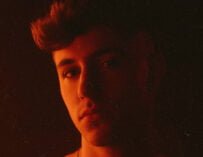

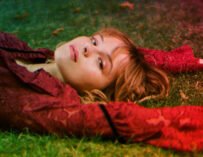
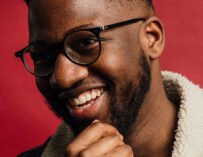

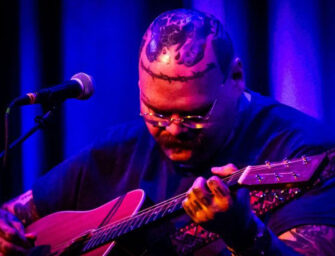
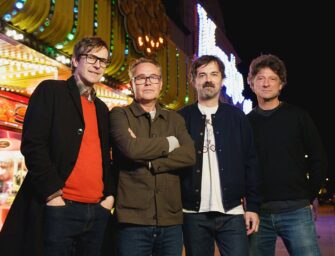

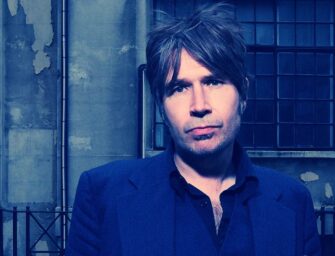























“I’m less afraid to be myself.”
“I keep a running list of words, phrases…….
Todd. This article is “bella.”
I so am looking forward to hearing, “Silence and Distance” and “Perfect.”
I can’t wait to buy and listen to your THIRD ALBUM creation, CURRENCY.. What a talent you are.
Unless I’ve missed it but have you written any articles on the best songwriter ever ie.Gerry Rafferty.His voice is perfection as well and I’m more than happy to write an article on him for you. No one gets close.
It’s the same for the fantastic guitarist since most musos have never heard of Frank Marino (who ?ha ha)check him out on you tube who is sooo gifted and a lot of his songs are above average thanks
Great interview, Todd. Nice window into you as a grown man. You’ve always been a beacon of creativity. Glad things are going so well.